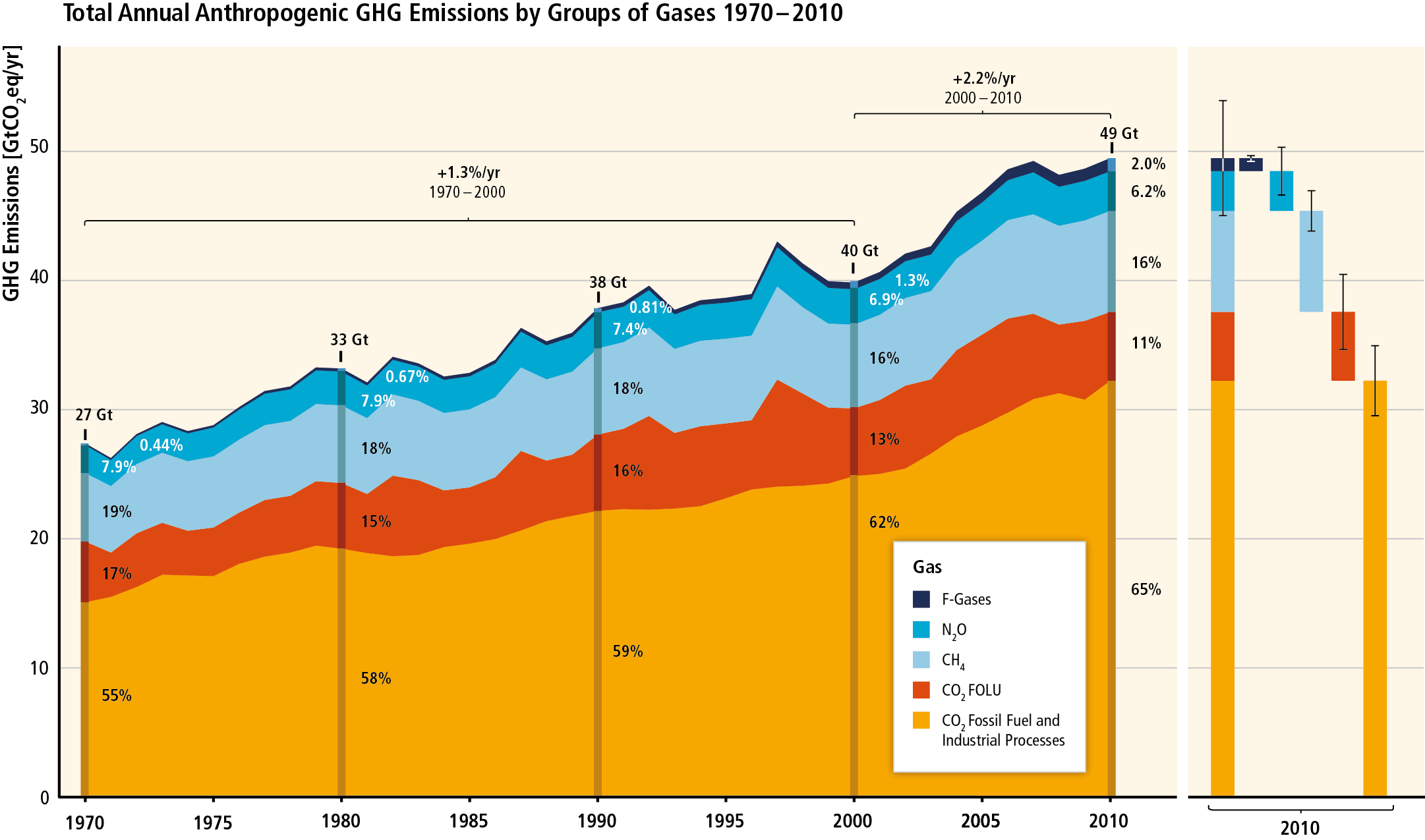Climate Change: The Fundamentals - Part I
The Greenhouse Gases
Note: This article is meant for anyone with a high school background in science.
The Greenhouse Effect
The Greenhouse Effect describes the ability of some materials to trap heat. One simple example - have you noticed that the inside of a parked car (windows rolled up) gets hotter if you leave it out in the sun? The outside temperature may be warm in the first place, but after an hour or two, the inside of the car often feels like a veritable furnace. Why? The glass windows trap heat inside the car. Another example is the concept of greenhouses (well..!). Greenhouses utilise this concept to keep the insides warm enough for more comfortable plant growth even in cold climates.
The Greenhouse Gases (GHGs)
For both the car and the greenhouse, the glass in the windows and doors acts as the greenhouse material that traps the heat. For the Earth, it is the presence of certain gases in the atmosphere. The idea may seem strange at first -- after all, the atmosphere gives us the very air we breathe. Indeed, it is the presence of GHGs in our atmosphere that makes the Earth habitable. Mars, which has too little GHGs in its atmosphere, is too cold for life. Venus, on the other hand, has much higher concentrations and is even hotter than Mercury, which is closer to the Sun than Venus.
Related: Here is a good illustration of the greenhouse effect on a website by the Australian government.
The "top" GHG is carbon dioxide (CO2), but it is not the only one. The following graph is from the IPCC 5th Assessment Report which shows that emissions of various GHGs have been increasing over the years. The graph stops at 2010 but the emission levels haven't gone down since. These emissions have led to an increase in concentration of GHGs in the atmosphere, leading to enhanced greenhouse effect and hence, global warming.
 |
| Source: IPCC AR5 |
While every single GHG merits attention, we focus on CO2 for a bit. The record of atmospheric CO2 concentrations with time (also called the Keeling Curve) shows that levels have risen from about 318 ppm in 1960 to about 412 ppm in 2019. The website by
the Scripps Institution of Oceanography (in-charge of the measurements
for the Keeling Curve) shows weekly, monthly and yearly values.
 |
| Source: Scripps Institution of Oceanography |
Global warming and climate change
Lastly, I'd like to show you this plot of global temperature anomalies (anomalies show differences from a baseline value). This takes into account both land and ocean temperatures. The graph shows a very clear rise for the last ~50 years.
 |
| Source: NASA |
One question frequently raised is why "climate change" replaced "global warming" as our top concern. Global warming refers to the increase in global temperatures, whereas climate change refers to a variety of other phenomena that accompanies this increase in global temperatures. For example, the concepts of precipitation changes or oceanographic circulation changes is not included in "global warming". Thus, global warming is part of the larger problem of climate change.
Related: Here is a good page by NASA Climate that explains the difference.
Related: Here is a good page by NASA Climate that explains the difference.
To summarise
Even a brief and cursory introduction to the Greenhouse Effect brings to fore the following points:
- The presence of GHGs in the atmosphere traps heat.
- Anthropogenic GHG emissions are rising.
- Atmospheric GHG concentrations are rising.
- Global temperatures are rising.
If you're thinking -- correlation does not imply causation -- you are right, it does not. The question "Man or Nature?" is answered in another post here.
Points to ponder
- If the greenhouse effect works even on other planets, why doesn't it "work" in some countries on our own planet? Why are some countries more cognisant of this problem than others? Why are some countries more motivated towards the reductions in GHG emissions than others?
- Keeping every other factor constant, does the greenhouse effect affect some political groups (such as the left wing / right wing) more than the others? If a country is governed by a left/right wing government, is it affected more/less by the greenhouse effect?
- If a particular political leader in power discusses climate change, does climate change become more real? Conversely, if the leader of the opposition discusses climate change, does the greenhouse effect become weaker?
I hope your answers will be reached through a rational thought process that focuses only on the science -- because (hint!) the answers don't depend on anything else.
-----
My effort is to write simple and accurate posts explaining the science behind climate change. If you would like to receive such posts via email, you may subscribe to the mailing list.


Comments
Post a Comment